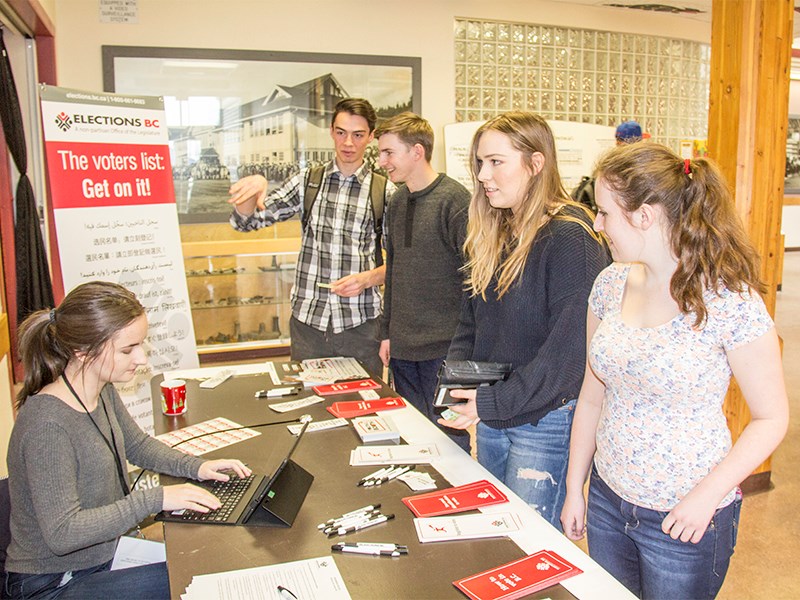When polls open for the provincial election on Tuesday, May 9, some high school students in Powell River will have the right to vote for the first time in their lives, if they turn 18 before election day.
Elections BC visited Brooks Secondary School on Wednesday, March 8, and Friday, March 10, to register eligible students.
Brooks vice-principal Lisa Gunn said approximately 40 of the 100 students graduating in 2017 will be of age to vote and many will exercise that right of Canadian citizenship.
Gunn said she was a social studies teacher for many years and found that students were interested because of discussions around what politics means to them.
“Most kids understand the youth vote as percentage is lower than other groups of people, so we talk a lot about voter apathy and what it means to be a citizen,” said Gunn. “I think they do care.”
Polling data from the 2013 provincial election indicates that turnout by voters age 18 to 34 was lowest among any age group in BC.
Brooks student Rachel Driedger said she will vote because of her political upbringing and is excited to finally be able to cast a ballot.
“My parents always watched CBC news and listened to CBC radio,” said Driedger. “Politics was something they always spoke about at the dinner table.”
Driedger said the subject of citizenship and democracy has been on the school curriculum since she was in grade one and has always been one of her favourite subjects.
According to Gunn, humanities, social studies and English teachers will often conduct a mock classroom vote to help students become more familiar with the democratic and electoral process.
“It’s good to model for the kids, then it gets the discussion going about, if it was a youth vote, what would the result look like and would it differ from the general election?” said Gunn.
Gunn said class discussions are about what it means to be a citizen and how the needs of young people are different from other segments of the voting public.
“To be an active citizen, if you don’t have a voice, how do you impact society?” she said.
In addition to registering voters, Elections BC was also on hand to encourage younger students in grades 10, 11 and 12, who are not yet eligible to vote, to work during the provincial election.
“This is the first time ever that kids as young as 15 can work on election day,” said Elections BC renumeration officer Austen Gunn.
“There seems to be excitement about the opportunities for work,” he said.
Teenagers will collect votes, give people directions and check for voters’ correct identification at polling stations.
According to Driedger, she has not decided who she will vote for yet, but her decision will be based on a number of factors, “including the environment, the community and budget,” she said. “There are a couple of more factors I’d like to think about.”



